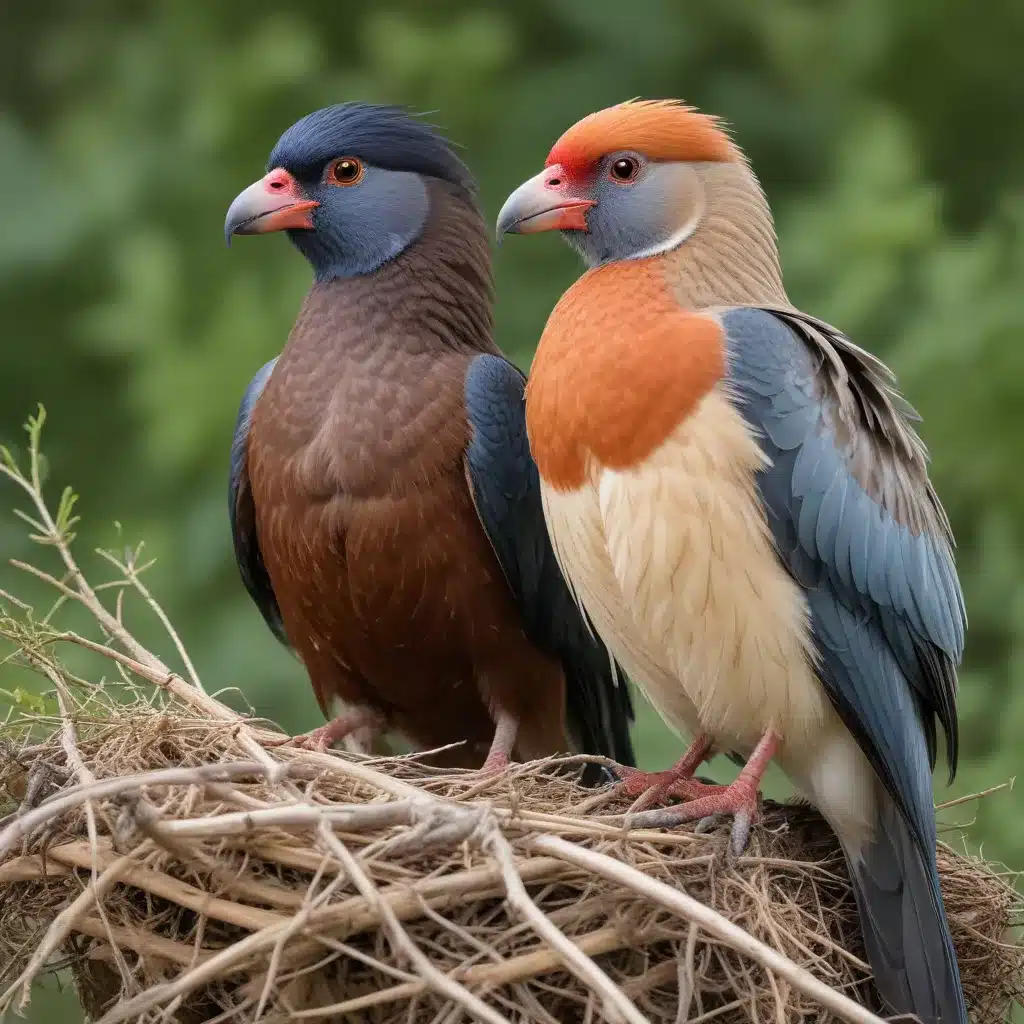
Avian Reproductive Biology
Maintaining optimal reproductive health is paramount for sustaining a productive and profitable poultry flock. Reproductive issues can significantly impact egg production and overall flock fertility, making it crucial to address these concerns through veterinary care and sound management practices. As an experienced avian caretaker, I understand the intricacies of avian reproductive biology and the pivotal role it plays in the success of any bird breeding operation.
Avian Reproductive Anatomy
The avian reproductive system is uniquely adapted to the demands of flight and the challenges of egg-laying. Unlike mammals, birds have a single, functional ovary and oviduct on the left side of the body. This asymmetry allows for a more streamlined anatomy, reducing weight and drag during flight. The ovary contains thousands of follicles, each with the potential to develop into a yolky ovum, or egg. As the follicle matures, it is released from the ovary and travels down the oviduct, where it is coated with albumen, membranes, and a calcareous shell before being laid.
Hormonal Regulation of Avian Reproduction
The delicate balance of reproductive hormones, such as luteinizing hormone (LH), follicle-stimulating hormone (FSH), and estrogen, orchestrates the intricate process of egg development and laying. Fluctuations in these hormone levels trigger the onset of breeding behaviors, egg formation, and incubation. Understanding the seasonal patterns and environmental cues that influence these hormonal changes is crucial for managing breeding birds effectively.
Breeding Behaviors in Birds
The courtship displays, nest-building, and parental care behaviors exhibited by birds are fascinating to observe. From the elaborate plumage and vocalizations used to attract mates, to the meticulous construction of nests and the tireless efforts of incubating and feeding chicks, these behaviors are essential for successful reproduction. By closely monitoring and interpreting these behaviors, avian caretakers can gain valuable insights into the reproductive health and well-being of their birds.
Avian Breeding Ecology
Habitat Selection and Nest-Building
The choice of nesting habitat and the construction of a suitable nest are critical factors in avian breeding success. Birds must balance the need for shelter, protection from predators, and access to resources like food and water. The specific nest-building techniques employed by different species, such as cavity-nesting or open-cup construction, reflect their evolutionary adaptations and ecological requirements.
Clutch Size and Incubation
The number of eggs laid, or clutch size, varies widely among bird species and is influenced by factors such as food availability, environmental conditions, and the bird’s overall condition. The incubation period, during which the parents carefully regulate temperature and humidity to ensure the successful development of the embryos, is another essential aspect of avian breeding ecology.
Parental Care and Fledgling Development
Once the chicks hatch, the parents’ role in providing food, warmth, and protection becomes crucial for the survival and growth of the young birds. The duration and intensity of parental care can have a significant impact on the fitness and future reproductive success of the fledglings.
Challenges in Avian Reproductive Health
Nutritional Deficiencies
Proper nutrition is essential for maintaining optimal reproductive health in birds. Imbalances or deficiencies in key nutrients, such as protein, calcium, or vitamins, can lead to a range of issues, including reduced egg production, thin or soft-shelled eggs, and impaired fertility. Ensuring a well-balanced diet tailored to the specific needs of the species is a critical component of avian reproductive management.
Infectious Diseases
Viral, bacterial, and parasitic infections can pose a significant threat to the reproductive health of a bird population. Diseases like avian influenza, Marek’s disease, and coccidiosis can disrupt the normal functioning of the reproductive system, leading to decreased fertility, egg production, and hatchability. Implementing comprehensive biosecurity measures and vigilant disease monitoring are essential for mitigating these risks.
Environmental Stressors
The physical and social environment in which birds are housed can greatly impact their reproductive success. Factors such as overcrowding, inadequate space, temperature extremes, and excessive noise or disturbance can induce physiological stress, which can, in turn, compromise the birds’ breeding performance. Providing a comfortable, stimulating, and low-stress environment is crucial for promoting optimal reproductive health.
Strategies for Successful Avian Breeding
Captive Breeding Programs
For rare or endangered species, well-managed captive breeding programs play a vital role in conservation efforts. These programs require a deep understanding of the species’ reproductive biology, as well as the implementation of specialized housing, nutrition, and veterinary care to ensure successful breeding and the maintenance of genetic diversity.
Habitat Management and Conservation
In the wild, the preservation and restoration of suitable breeding habitats are crucial for sustaining healthy bird populations. This may involve managing vegetation, controlling predator populations, and mitigating human-induced disturbances to create an environment that supports the breeding needs of target species.
Veterinary Interventions
Collaboration with avian veterinarians is essential for navigating the complexities of reproductive health in birds. Veterinary professionals can provide guidance on addressing issues such as egg-laying abnormalities, reproductive diseases, and fertility concerns, as well as develop customized management strategies to optimize breeding success.
Maintaining a comprehensive understanding of avian reproductive biology, breeding ecology, and the various challenges that can impact reproductive health is the foundation for ensuring successful breeding outcomes. By integrating sound management practices, implementing targeted veterinary care, and fostering healthy, low-stress environments, avian caretakers can help their birds thrive and contribute to the long-term sustainability of vibrant bird populations. For more information on avian care and breeding, please visit Mika Birds Farm.


